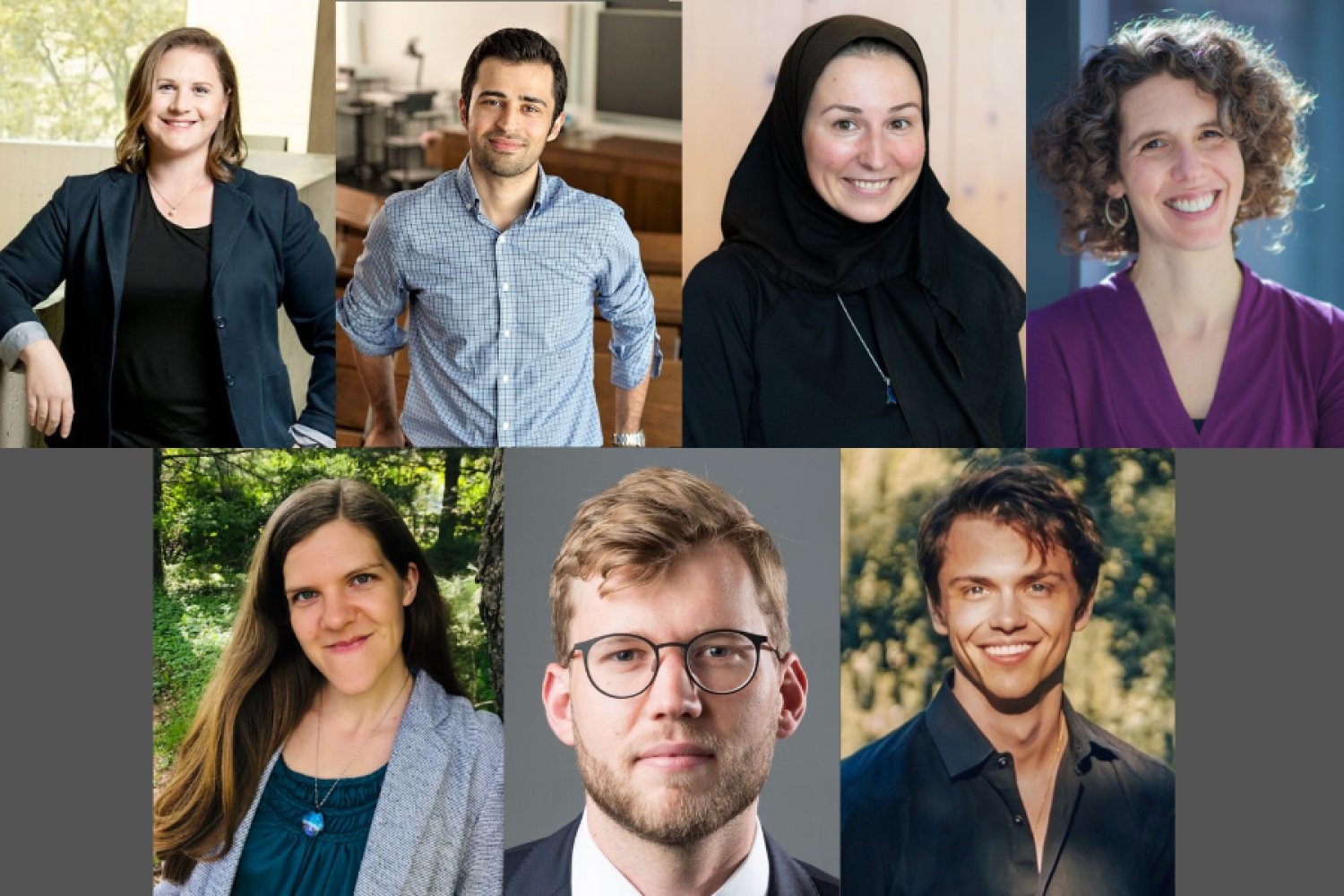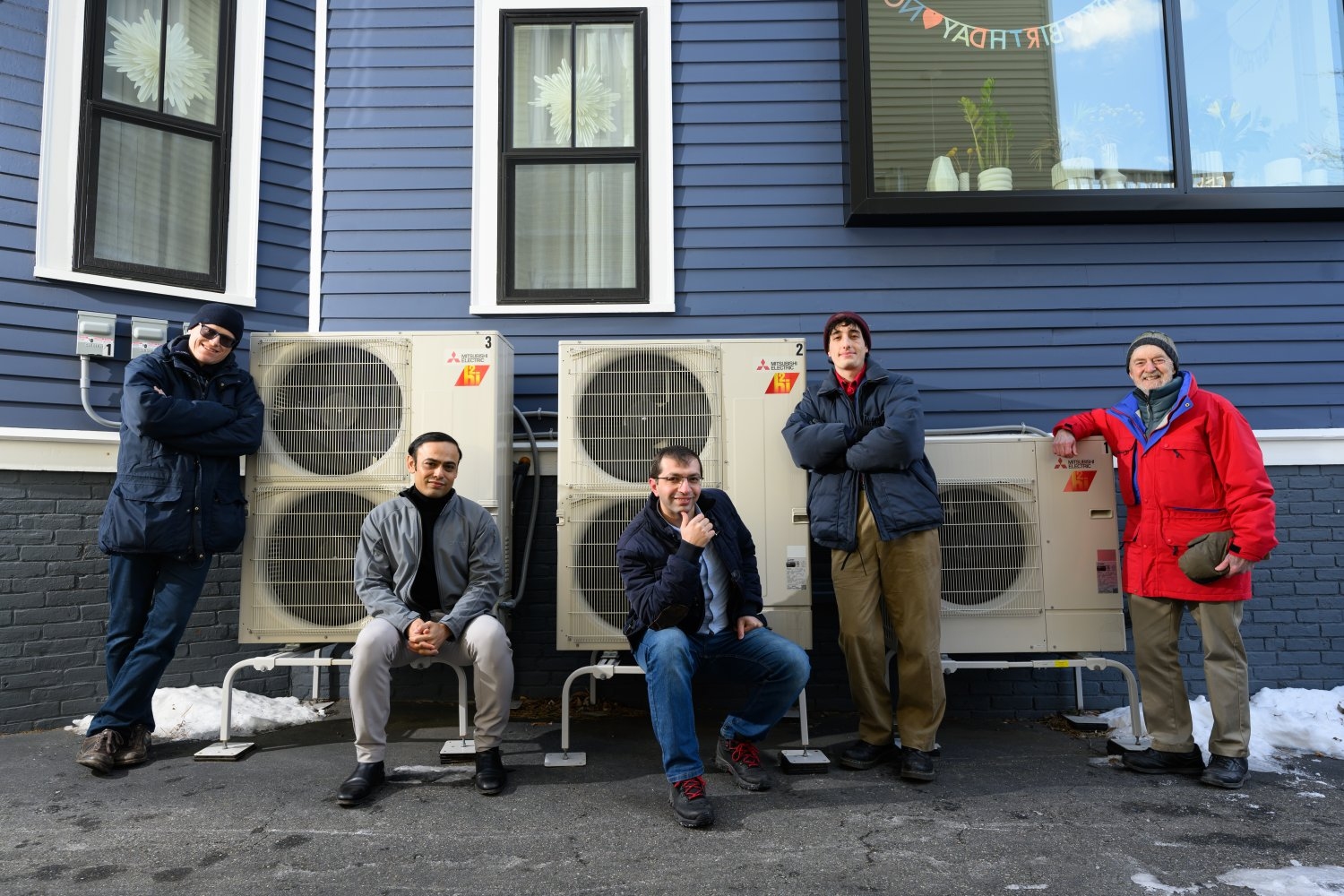MIT faculty, alumni named 2025 Sloan Research Fellows

Seven MIT faculty and 21 additional MIT alumni are among 126 early-career researchers honored with 2025 Sloan Research Fellowships by the Alfred P. Sloan Foundation.
The recipients represent the MIT departments of Biology; Chemical Engineering; Chemistry; Civil and Environmental Engineering; Earth, Atmospheric and Planetary Sciences; Economics; Electrical Engineering and Computer Science; Mathematics; and Physics as well as the Music and Theater Arts Section and the MIT Sloan School of Management.
The fellowships honor exceptional researchers at U.S. and Canadian educational institutions, whose creativity, innovation, and research accomplishments make them stand out as the next generation of leaders. Winners receive a two-year, $75,000 fellowship that can be used flexibly to advance the fellow’s research.
“The Sloan Research Fellows represent the very best of early-career science, embodying the creativity, ambition, and rigor that drive discovery forward,” says Adam F. Falk, president of the Alfred P. Sloan Foundation. “These extraordinary scholars are already making significant contributions, and we are confident they will shape the future of their fields in remarkable ways.”
Including this year’s recipients, a total of 333 MIT faculty have received Sloan Research Fellowships since the program’s inception in 1955. MIT and Northwestern University are tied for having the most faculty in the 2025 cohort of fellows, each with seven. The MIT recipients are:
Ariel L. Furst is the Paul M. Cook Career Development Professor of Chemical Engineering at MIT. Her lab combines biological, chemical, and materials engineering to solve challenges in human health and environmental sustainability, with lab members developing technologies for implementation in low-resource settings to ensure equitable access to technology. Furst completed her PhD in the lab of Professor Jacqueline K. Barton at Caltech developing new cancer diagnostic strategies based on DNA charge transport. She was then an A.O. Beckman Postdoctoral Fellow in the lab of Professor Matthew Francis at the University of California at Berkeley, developing sensors to monitor environmental pollutants. She is the recipient of the NIH New Innovator Award, the NSF CAREER Award, and the Dreyfus Teacher-Scholar Award. She is passionate about STEM outreach and increasing participation of underrepresented groups in engineering.
Mohsen Ghaffari SM ’13, PhD ’17 is an associate professor in the Department of Electrical Engineering and Computer Science (EECS) as well as the Computer Science and Artificial Intelligence Laboratory (CSAIL). His research explores the theory of distributed and parallel computation, and he has had influential work on a range of algorithmic problems, including generic derandomization methods for distributed computing and parallel computing (which resolved several decades-old open problems), improved distributed algorithms for graph problems, sublinear algorithms derived via distributed techniques, and algorithmic and impossibility results for massively parallel computation. His work has been recognized with best paper awards at the IEEE Symposium on Foundations of Computer Science (FOCS), ACM-SIAM Symposium on Discrete Algorithms (SODA), ACM Symposium on Parallelism in Algorithms and Architectures (SPAA), the ACM Symposium on Principles of Distributed Computing (PODC), and the International Symposium on Distributed Computing (DISC), the European Research Council’s Starting Grant, and a Google Faculty Research Award, among others.
Marzyeh Ghassemi PhD ’17 is an associate professor within EECS and the Institute for Medical Engineering and Science (IMES). Ghassemi earned two bachelor’s degrees in computer science and electrical engineering from New Mexico State University as a Goldwater Scholar; her MS in biomedical engineering from Oxford University as a Marshall Scholar; and her PhD in computer science from MIT. Following stints as a visiting researcher with Alphabet’s Verily and an assistant professor at University of Toronto, Ghassemi joined EECS and IMES as an assistant professor in July 2021. (IMES is the home of the Harvard-MIT Program in Health Sciences and Technology.) She is affiliated with the Laboratory for Information and Decision Systems (LIDS), the MIT-IBM Watson AI Lab, the Abdul Latif Jameel Clinic for Machine Learning in Health, the Institute for Data, Systems, and Society (IDSS), and CSAIL. Ghassemi’s research in the Healthy ML Group creates a rigorous quantitative framework in which to design, develop, and place machine learning models in a way that is robust and useful, focusing on health settings. Her contributions range from socially-aware model construction to improving subgroup- and shift-robust learning methods to identifying important insights in model deployment scenarios that have implications in policy, health practice, and equity. Among other awards, Ghassemi has been named one of MIT Technology Review’s 35 Innovators Under 35 and an AI2050 Fellow, as well as receiving the 2018 Seth J. Teller Award, the 2023 MIT Prize for Open Data, a 2024 NSF CAREER Award, and the Google Research Scholar Award. She founded the nonprofit Association for Health, Inference and Learning (AHLI) and her work has been featured in popular press such as Forbes, Fortune, MIT News, and The Huffington Post.
Darcy McRose is the Thomas D. and Virginia W. Cabot Career Development Assistant Professor of Civil and Environmental Engineering. She is an environmental microbiologist who draws on techniques from genetics, chemistry, and geosciences to understand the ways microbes control nutrient cycling and plant health. Her laboratory uses small molecules, or “secondary metabolites,” made by plants and microbes as tractable experiments tools to study microbial activity in complex environments like soils and sediments. In the long term, this work aims to uncover fundamental controls on microbial physiology and community assembly that can be used to promote agricultural sustainability, ecosystem health, and human prosperity.
Sarah Millholland, an assistant professor of physics at MIT and member of the Kavli Institute for Astrophysics and Space Research, is a theoretical astrophysicist who studies extrasolar planets, including their formation and evolution, orbital dynamics, and interiors/atmospheres. She studies patterns in the observed planetary orbital architectures, referring to properties like the spacings, eccentricities, inclinations, axial tilts, and planetary size relationships. She specializes in investigating how gravitational interactions such as tides, resonances, and spin dynamics sculpt observable exoplanet properties. She is the 2024 recipient of the Vera Rubin Early Career Award for her contributions to the formation and dynamics of extrasolar planetary systems. She plans to use her Sloan Fellowship to explore how tidal physics shape the diversity of orbits and interiors of exoplanets orbiting close to their stars.
Emil Verner is the Albert F. (1942) and Jeanne P. Clear Career Development Associate Professor of Global Management and an associate professor of finance at the MIT Sloan School of Management. His research lies at the intersection of finance and macroeconomics, with a particular focus on understanding the causes and consequences of financial crises over the past 150 years. Verner’s recent work examines the drivers of bank runs and insolvency during banking crises, the role of debt booms in amplifying macroeconomic fluctuations, the effectiveness of debt relief policies during crises, and how financial crises impact political polarization and support for populist parties. Before joining MIT, he earned a PhD in economics from Princeton University.
Christian Wolf, the Rudi Dornbusch Career Development Assistant Professor of Economics and a faculty research fellow at the National Bureau of Economic Research, works in macroeconomics, monetary economics, and time series econometrics. His work focuses on the development and application of new empirical methods to address classic macroeconomic questions and to evaluate how robust the answers are to a range of common modeling assumptions. His research has provided path-breaking insights on monetary transmission mechanisms and fiscal policy. In a separate strand of work, Wolf has substantially deepened our understanding of the appropriate methods macroeconomists should use to estimate impulse response functions — how key economic variables respond to policy changes or unexpected shocks.
The following MIT alumni also received fellowships:
Jason Altschuler SM ’18, PhD ’22
David Bau III PhD ’21
Rene Boiteau PhD ’16
Lynne Chantranupong PhD ’17
Lydia B. Chilton ’06, ’07, MNG ’09
Jordan Cotler ’15
Alexander Ji PhD ’17
Sarah B. King ’10
Allison Z. Koenecke ’14
Eric Larson PhD ’18
Chen Lian ’15, PhD ’20
Huanqian Loh ’06
Ian J. Moult PhD ’16
Lisa Olshansky PhD ’15
Andrew Owens SM ’13, PhD ’16
Matthew Rognlie PhD ’16
David Rolnick ’12, PhD ’18
Shreya Saxena PhD ’17
Mark Sellke ’18
Amy X. Zhang PhD ’19
Aleksandr V. Zhukhovitskiy PhD ’16



